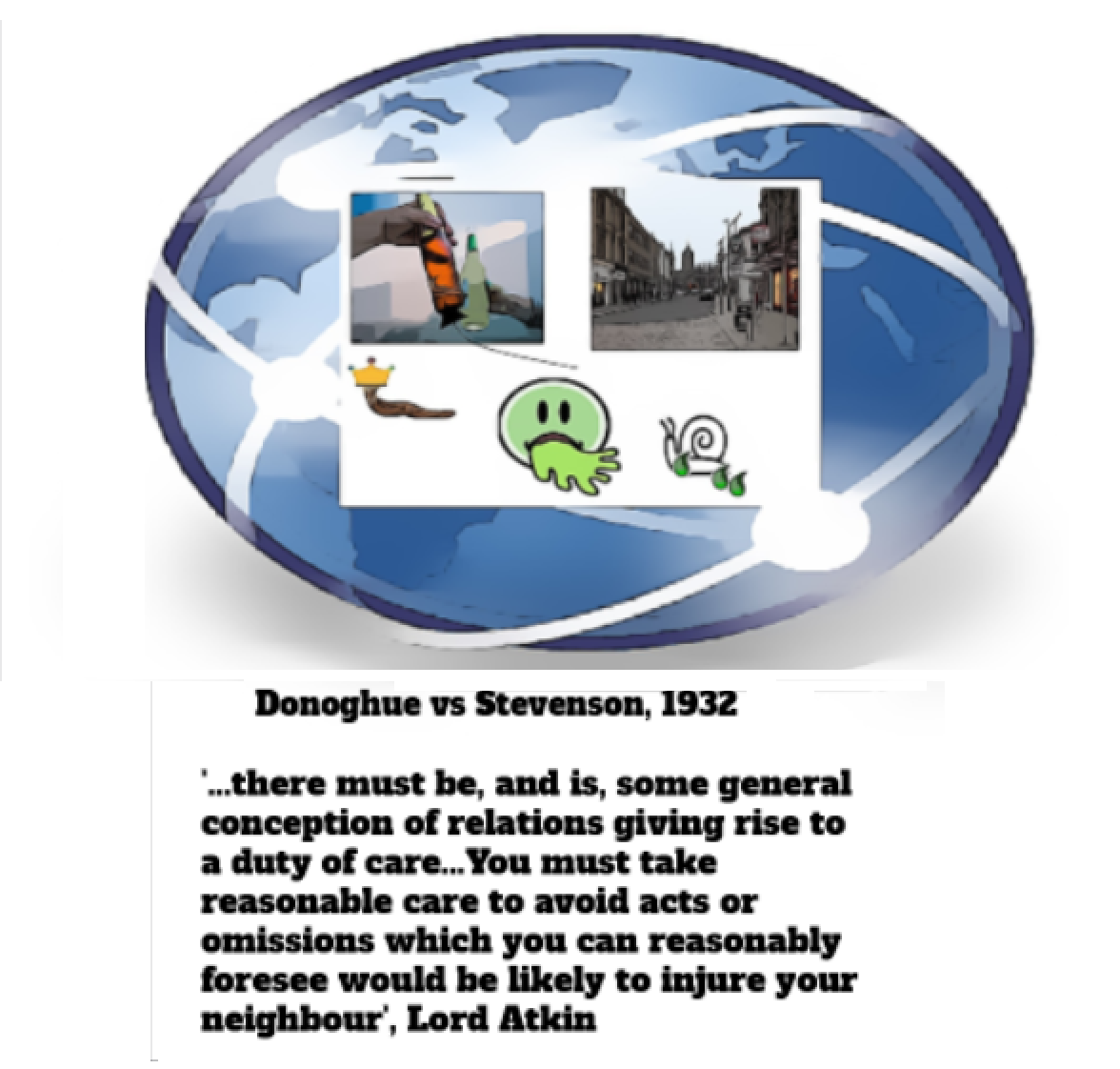Dongohue v Stevenson, 1932 UKHL 100
Citation:Dongohue v Stevenson, 1932 UKHL 100
Rule of thumb:What is the neighbourhood principle? What does duty of care mean? The Court in this case affirmed the neighbourhood principle – people widely owe a ‘duty of care’ to society at large ensure that their conduct held that their conduct does not cause another person in society to be physically injured, and if it does then they could be liable for the damages caused. In order to sue someone for personal injury damages, all that has to be shown is damage caused and reasonable cause through a common law or statutory provision having been breached by the person leading to this damage.
Background facts:
The facts were that 2 friends were meeting on Paisley High Street for a drink. One of the friends ordered a ginger beer. After taking several drinks of the ginger beer, it was discovered that there was a slug in the bottle. This person was totally grossed out by this of course. This patron sued the manufacturer of the ginger beer rather than the owner of the cafe where the ginger beer was purchased.
Parties argued:
When the case was first called in Court, the drinks manufacturer argued that they had no contractual relationship with the purchaser and therefore no legal relation with the purchaser. The manufacturer argued that the person had to sue the cafe. The purchaser argued that it was clearly the fault of the manufacturer who let the slug get inside the bottle so that was why they were being sued.
Judgment:
The manufacturer’s argument was initially accepted the Court at first instance. However, the House of Lords eventually rejected these arguments by the drinks manufacturer. The Court held that people in society owe a duty of skill and care to all people in society, even those they do not have a contractual relationship with, to ensure that they carry out their job to a reasonable level, and if they do not, and cause the third party personal injury damages, they will be liable to them for the damages. This was a landmark Court ruling affirming the duty of care in personal injury cases. The case was therefore sent back to the Court of first instance for reconsideration, with it being affirmed that someone finding a foreign object in their food/drink raises a prima facie strong case in product liability.

Ratio-decidendi:
‘At present I content myself with pointing out that in English law there must be, and is, some general conception of relations giving rise to a duty of care, of which the particular cases found in the books are but instances. The liability for negligence, whether you style it such or treat it as in other systems as a species of "culpa," is no doubt based upon a general public sentiment of moral wrongdoing for which the offender must pay. But acts or omissions which any moral code would censure cannot, in a practical world, be treated so as to give a right to every person injured by them to demand relief. In this way rules of law arise which limit the range of complainants and the extent of their remedy. The rule that you are to love your neighbour becomes in law, you must not injure your neighbour; and the lawyer's question, Who is my neighbour? receives a restricted reply. You must take reasonable care to avoid acts or omissions which you can reasonably foresee would be likely to injure your neighbour. Who, then, in law, is my neighbour? The answer seems to be – persons who are so closely and directly affected by my act that I ought reasonably to have them in contemplation as being so affected when I am directing my mind to the acts or omissions which are called in question’, Lord Atkin
Warning: This is not professional legal advice. This is not professional legal education advice. Please obtain professional guidance before embarking on any legal course of action. This is just an interpretation of a Judgment by persons of legal insight & varying levels of legal specialism, experience & expertise. Please read the Judgment yourself and form your own interpretation of it with professional assistance.

